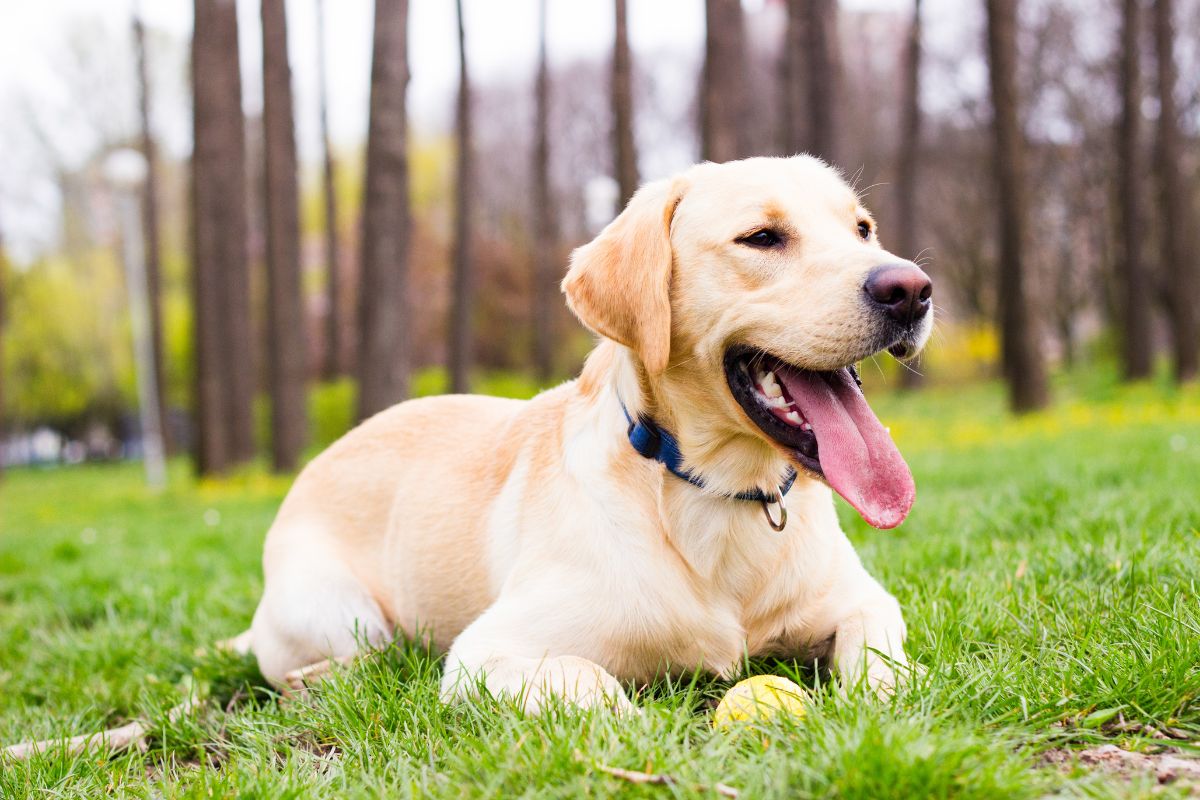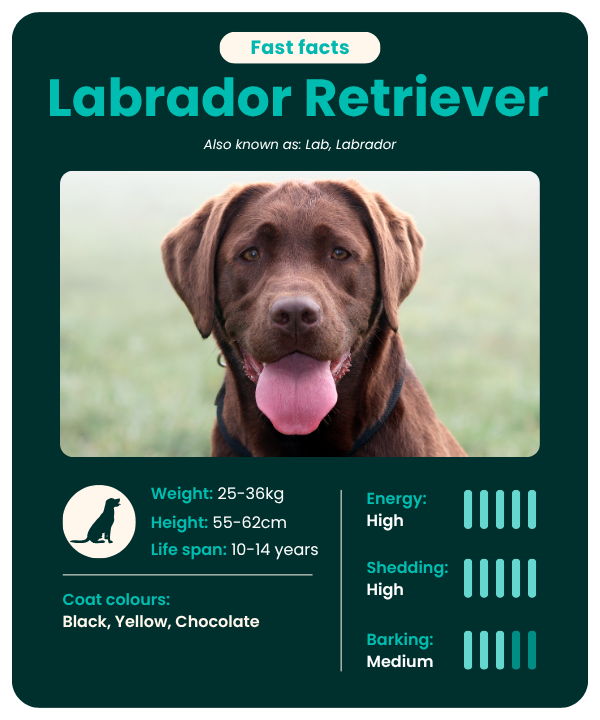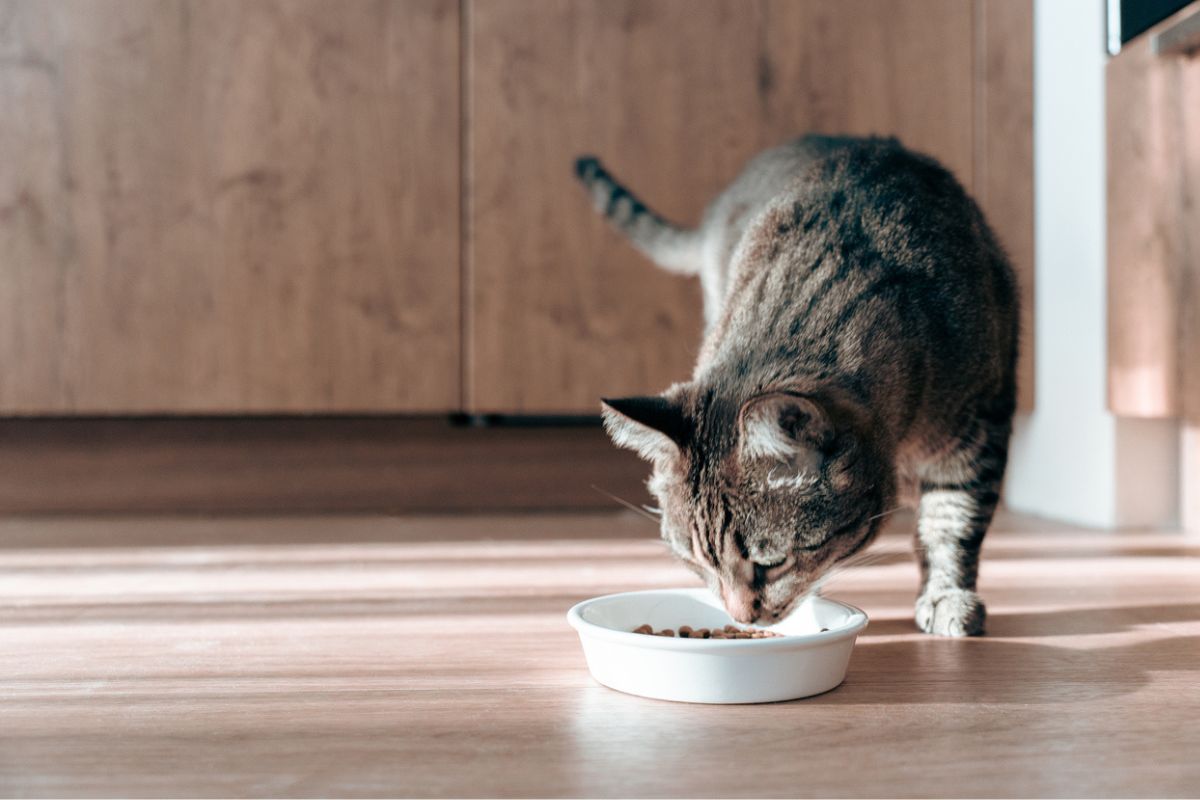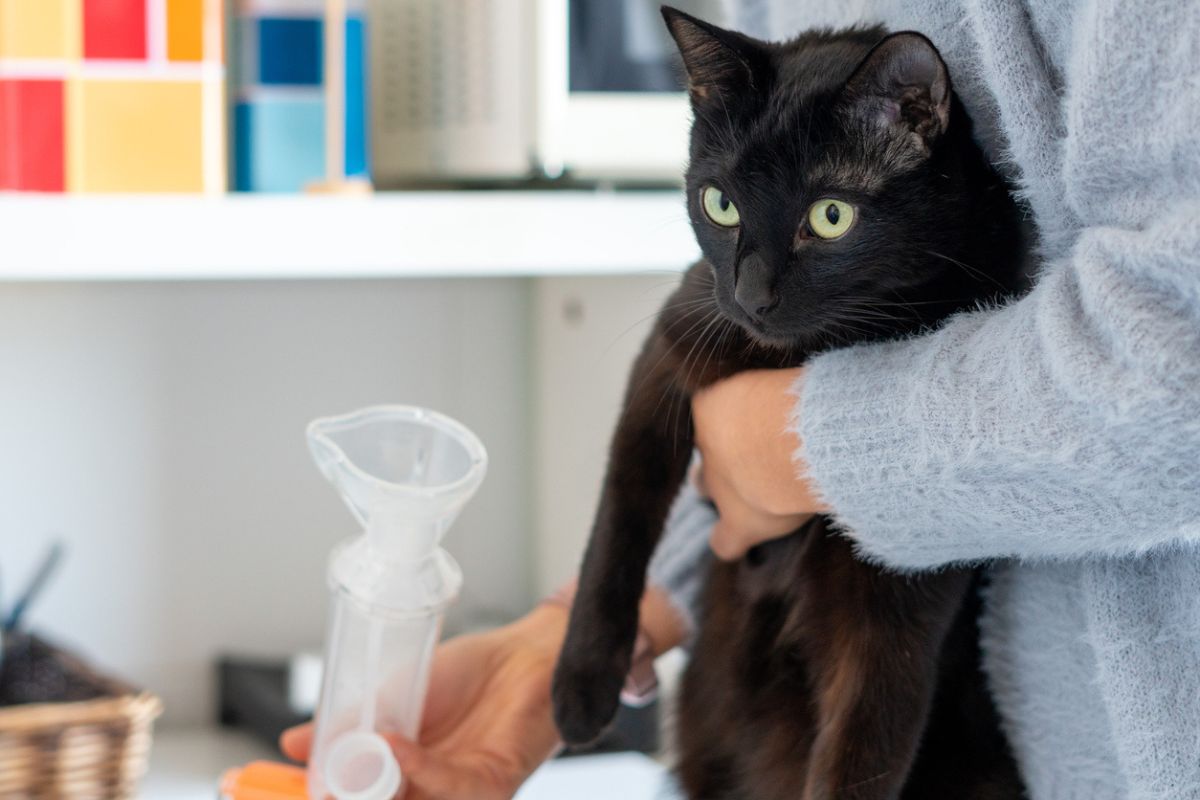Bold and playful, Labrador Retrievers love to be part of the action at all times. Their gentle and patient nature with kids makes them an obvious choice for families.
Personality and temperament
Labrador Retrievers are one of the most even-tempered hounds around. They handle the rough and tumble of family life with their signature patience and playfulness, and love being the centre of attention. Labs are incredibly loyal, but their goofy charm, friendliness and warmth is hard to resist, moving them near the bottom of the list of potential guard dogs.
Size and appearance
Labradors are medium to large dogs (25–36kg) with a muscly, athletic build, floppy ears, expressive eyes and a constantly wagging tail. They have stocky, sturdy bodies, a broad head and webbed feet (like a duck) that helps them swim through the water more efficiently. They sport a short double coat that is water resistant and comes in yellow, black and a rich chocolate colour.
History
Originally from the island of Newfoundland, off the coast of Canada, Labs were bred as helpers for local fisherman, hauling in lines and fish in the 1700s. Admired for their love of the water and with retrieving, they were imported to England a century later to serve as waterfowl retrievers for hunters. English noblemen later refined the breed to the one we know (and love) today. Due to their eagerness to learn, their patience and loyalty they are also used as guide dogs, mobility assistant dogs, medical alert dogs and emotional support companions.
Health conditions that can affect this breed
Labrador Retrievers are generally a healthy breed, but they can be prone to:
- Hip and elbow dysplasia (where hip or elbow joints don’t form properly. You can reduce the risk of this by selecting a reputable breeder and through good diet and plenty of exercise.)
- Obesity (which can lead to other health issues)
- Eye problems (like Progressive retinal atrophy (PRA))
- Ear infections (especially after swimming)
- Exercise-induced collapse (EIC) (a genetic condition where a dog may collapse after intense exercise)
Regular check-ups and early diagnosis can help prevent and manage these conditions.
Food and exercise
Being an athletic breed, Labradors need a well-balanced diet with plenty of high-protein food to fuel their muscles – chicken, fish or lamb are great options. However, Labs can be obsessed with food, so take care not to overfeed them, even if their eyes beg you for just one more treat. This knack for gobbling up anything means Labs are often eating things they shouldn’t; from socks to squeaky toys – if it fits in their mouths, it’s fair game. Gut obstructions can be life-threatening in dogs, so if your Lab is vomiting or hasn’t eaten for more than 48 hours, head to the vet straight away.
These active hounds were bred to be outside all day, every day, so make sure your Labrador gets plenty of exercise, otherwise they can become destructive and hyperactive. At least two hours a day walking, hiking, jogging and swimming will do the trick.
Grooming and maintenance
Labrador Retrievers have a thick, water-resistant double coat that will leave fur around your house (and on your clothes), but this can be managed with regular brushing.
- Bathe: every 6–8 weeks (or sooner if needed)
- Professional groom: not required
How to groom a Labrador Retriever
- Fur: brush several times a week (especially during the puppy phase)
- Nails: trim every 4 weeks (or as needed)
- Ears: clean weekly to remove wax and hair build up
- Eyes: clean tear stains with a soft, damp cloth
Training and space requirements
With their sharp minds and eagerness to please, Labs are easier to train than some other breeds. Consistent training with positive rewards will help control their hyperactive nature and they love nothing more than having a ‘job’ to do.
Being an adaptable breed, Labs can live in smaller spaces if they get enough exercise and mental stimulation – they prefer active play with their humans to a fenced backyard.
Best suited for…
Gentle souls, Labrador Retrievers are best suited to anyone who can commit to exercising this loyal, playful dog. They’re equally happy in big families, multi-pet households and owners who want nothing more than to share their couch with them.



